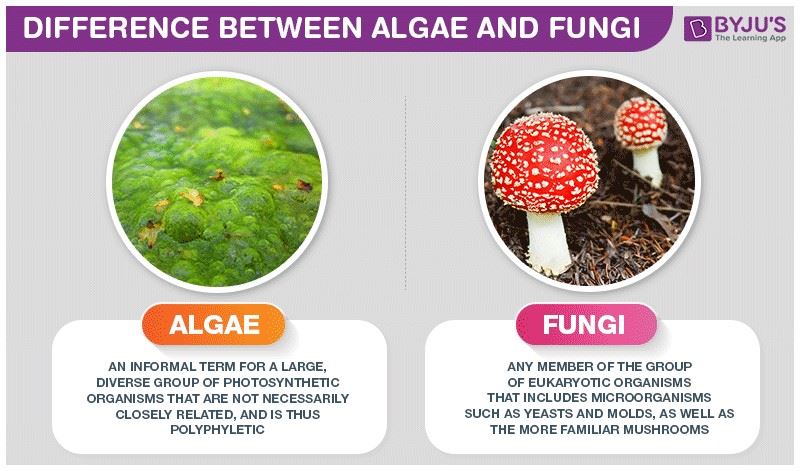Algae and fungi differ in their mode of nutrition. Algae are autotrophic. They have chlorophyll and perform photosynthesis. Fungi are heterotrophic, they are dependent on others for their nutrients requirement. They feed on dead and decaying organic matter.

Algae vs Fungi
Some of the algae and fungi live in a symbiotic relationship, e.g. Lichens. In lichens, the algal partner provides food to fungi and in return, fungi provide shelter to algae.
|
Difference Between Algae And Fungi |
|
| Algae |
Fungi |
|
The word “Alga” means “Seaweed” |
The word “Fungus” means “Sponge” |
| Algae are grouped in the kingdom Plantae. The unicellular blue-green algae are kept under the kingdom Protista |
In the five-kingdom classification by Whittaker, fungi were placed in a separate kingdom Fungi |
|
Autotrophic mode of nutrition |
Heterotrophic mode of nutrition |
|
They are not parasitic, have chlorophyll and make their own food by photosynthesis. |
Some of the fungi are parasite |
Similarities between Algae and Fungi
Following are the important similarities between algae and fungi:
- Vascular tissues are absent in algae and fungi both.
- Both have eukaryotic cells.
- Asexual reproduction by fragmentation occurs in both algae and fungi.
- Reproductive organs lack a protective covering.
Conclusion
Algae and fungi differ remarkably in their structure and mode of nutrition. They do coexist as lichens in a symbiotic relationship.
Related Articles:
| Thallophyte |
| Protista |

This site is very educative I LOVE THIS SITE